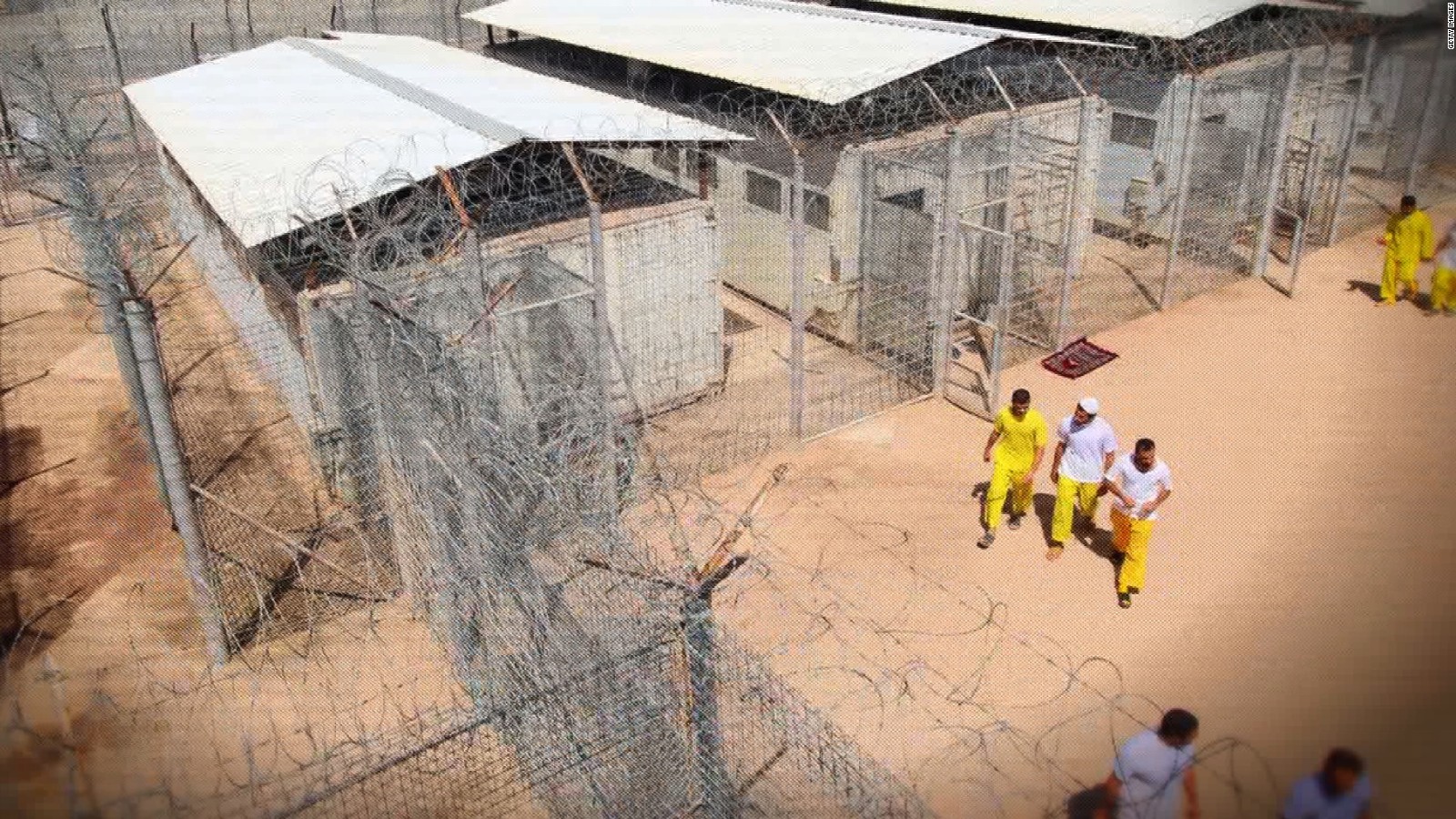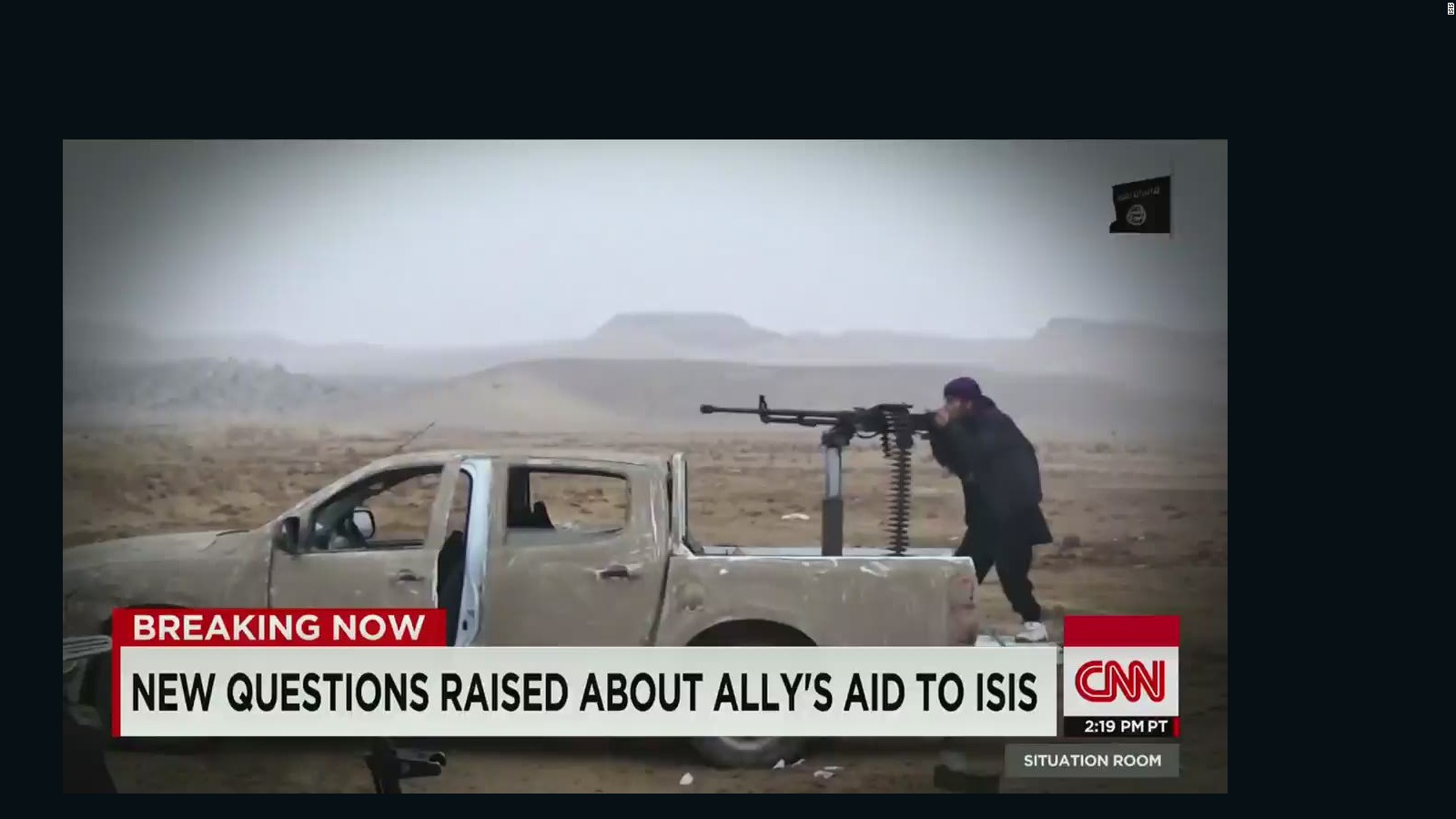For
sheer cruelty, they are well matched. They also share an apocalyptic
"end-of-days" vision. Now there are signs that Boko Haram -- the most
feared group in West Africa -- may be edging toward a formal pledge of
allegiance to the self-declared Caliph of the Islamic State, Abu Bakr
al-Baghdadi.
Observers of Boko
Haram, which has inflicted years of terror on northern Nigeria, note
that its actions in the last six months have frequently mimicked those
of ISIS -- from punishments such as stoning and beheading of its victims
to taking territory and an increasingly sophisticated use of social
media that's very much in the ISIS "style."
The
latest sign that Boko Haram is wooing ISIS came on Sunday with a series
of tweets released by jihadist site Afriqiyah Media, which declared its
own allegiance to ISIS in December. One tweet quoted Boko Haram's own
media arm as saying: "We give you glad tidings that the group's Shurah
Council is at the stage of consulting and studying, and we will let you
know soon the group's decision in respect to pledging allegiance to the
Caliph of the Muslims Abu Bakr al-Baghdadi, may Allah preserve him,"
according to a translation by SITE Intelligence.
The message was purportedly posted on February 9.
It's
an unusual if unverifiable commentary on Boko Haram's internal
processes. Jacob Zenn, who follows Boko Haram's operations and
propaganda closely, says, "It is possible that due to factions within
Boko Haram the shura was unable to come to an agreement at this point."
"Despite
this," Zenn told CNN, "It's clear Boko Haram is leaning toward ISIS in
terms of doctrine, ideology and an emphasis on holding territory after
operations."
In August last year,
Boko Haram declared its own "caliphate" -- after seizing the area around Gwoza in Borno state.
At other times its media arm has spoken of the "Islamic State in Africa" and the "Islamic State in West Africa."
Polished media
In terms of ideology,
Boko Haram's leader Abubakar Shekau
has said that kidnappings and hostage-taking are approved in the Quran,
a claim ISIS also makes. "Our hostages are Christians or corrupted
Muslims who follow the Christian way," he said last year, referring to
the schoolgirls kidnapped in Chibok, Nigeria, most of whom remain
missing. ISIS later referred to the
Chibok abductions in its kidnapping of hundreds of Yazidi women and girls.
Zenn
and other analysts point out that recent Boko Haram videos have
resembled the polished media productions of ISIS. Zenn notes they "have
the same choreography and lens angles as ISIS, particularly its video of
John Cantlie in Kobani."
The group's
latest production -- released at the weekend and showing fighting around
the town of Baga in Borno state -- was a high-definition offering with
advanced graphics, audio effects and gratuitous brutality that could
easily have been produced by ISIS. Boko Haram has also begun
distributing photographs and videos through its Twitter accounts, (one
of which was no longer accessible Tuesday, February 24.)
Boko
Haram has begun using ISIS symbolism in its media productions and
operations. The Nigerian press noted with alarm last July that Boko
Haram militants had been seen raising ISIS' rayat al-uqab flag along the
Nigerian-Cameroon border. Recent videos have featured the same flag.
Nor
is Boko Haram shy about appealing for help from ISIS. The message
posted on February 9 requested the "mujahideen of the Islamic State to
deliver our message to all Muslims that your brothers in Nigeria are
calling you to immigrate to us, to assist us in managing the areas in
which we have control and fight the alliance of the disbelievers."
A
formal pledge of allegiance may only occur once a positive response is
assured. Boko Haram's leader, Abubakar Shekau, has spoken in glowing
terms of al-Baghdadi and ISIS, as well as al Qaeda, saying last July:
"My brethren... may Allah protect you." A recent video from the group
featured an image of al-Baghdadi in Mosul, Iraq, last year.
So
far, the response from ISIS has been muted, especially when compared to
al-Baghdadi's very public proclamation of "provinces" in Libya and
Egypt. One reason may be that ISIS doesn't altogether trust Shekau --
whose pronouncements are often incoherent and meandering -- and
perceives Boko Haram to be disunited.
ISIS
may also be wary of Boko Haram's existing links with al Qaeda in the
Islamic Maghreb (AQIM); al Qaeda and ISIS are competing for leadership
of the global jihadist movement.
However,
some factions within AQIM have themselves pledged to ISIS, and analysts
note that some prominent supporters of ISIS -- such as Shaybah al-Hamad
-- have begun promoting statements and videos produced by Boko Haram.
Earlier
this month, U.S. National Counterterrorism Center Director Nicholas
Rasmussen told a congressional hearing that there was "increased
intercommunication between Boko Haram and other terrorist groups in the
northwestern part of Africa and even with ISIL," using another acronym
for ISIS.
In an
interview with the al Hayat newspaper
last weekend, Libyan Foreign Minister Mohammed al-Dairi said that
"groups associated with Boko Haram have been detained" in Libya and
spoke of a "dreadful terrorist network between IS in Syria and Iraq,
[partners] in Libya and Mali, and Boko Haram."
That
may suggest the emergence of a broader front stretching from northern
Nigeria through the Sahel to the Mediterranean. Boko Haram fighters
already have experience in that region: a number joined the
Islamist insurgency which seized the northern half of Mali in 2012 before being driven out by a French-led intervention force.
Pledging loyalty
Boko
Haram already has a sophisticated smuggling network that reaches far
beyond Nigeria -- into Cameroon, Niger and Chad -- and taking advantage
of poorly policed borders.
Zenn, who is
an analyst at the Jamestown Foundation, says the fact that Afriqiyah
Media released recent messages may itself be ominous. He says it "is
closely affiliated to Tunisian jihadist brigades that already pledged
loyalty to Islamic State in 2014."
"Given
ISIS penetration in Tunisia and Libya, and Boko Haram's logistical
connections to North Africa," says Zenn, "it would not be surprising if
North African jihadists helped make the segue between ISIS in Iraq and
Syria and Boko Haram in northeastern Nigeria."
Further
evidence of ISIS sympathizers in Tunisia emerged Monday, when the
Tunisian Interior Ministry announced the arrests of about 100 alleged
extremists, and published a video allegedly showing the group possessed a
formula for making explosives and a photograph of al-Baghdadi.
It's estimated that between 2,500 and 3,000 Tunisians have traveled to Iraq and Syria, most to join ISIS.
Another
part of Boko Haram's strategy that may borrow from ISIS is its
concentration on creating its own space either side of international
borders. Just as ISIS has carved out its "Caliphate" on both sides of
the Syrian-Iraq border, so Boko Haram has focused on Borno state, which
borders both Cameroon and Chad.
Shekau
has castigated (as has ISIS) the colonial-era borders separating
Muslims, saying once: "We don't know Cameroon or Chad... I don't have a
country." And earlier this month he declared in another video: "O people
of Cameroon! O people of Chad! Repent to Allah the Almighty. Know that
one cannot be a Muslim but by disavowing democracy."
Once
seen as an exclusively Nigerian movement, Boko Haram's horizons are
broadening to the north and east, prompting closer military co-operation
by the governments of Nigeria, Chad and Cameroon, whose latest
offensive appears to be putting Boko Haram on the defensive in some
parts of the border region.
When and
whether there will be a formal alliance between Boko Haram and ISIS is
still very much open to debate -- but at the very least the Nigerian
group's shifting priorities, behavior and presentation is another sign
of ISIS' far-reaching influence among jihadist groups.









